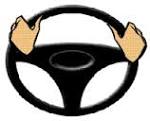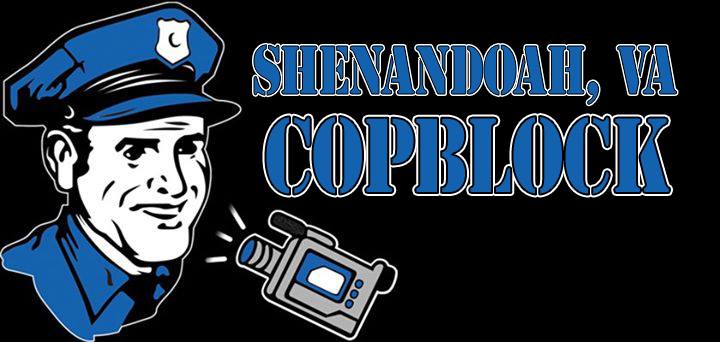An officer is pulling you over. What you do next may be the difference between a ticket and arrest, or going home. These tips will help you and the officer survive the traffic stop. A traffic stop is the most dangerous part of a policemans job. As such, they are far more likely to be alert and ready to pounce. DON'T GIVE THEM A REASON!!!
He's behind you and his lights are on.
Stay calm and pull over (USE YOUR SIGNAL). Find a safe place to pull over. You want to pull over in a well lit public place with plenty of room to keep both you and the officer safe. If you have to drive more than 30 seconds he may think that you are trying to hide something or even worse, planning to run or shoot him. Pull over immediately. If its not a safe place, the officer will order you to continue to a safer location.
When you pull over, TURN OFF YOUR CAR.
Next, turn off your music.
Turn on your interior lights and your hazards.
Now place your hands on the steering wheel in the 10 and 2  position.
position.
Have the front passenger place their hands either on the dashboard or on the ceiling/roof.
Rear passengers should grab the head rest of the seat in front of them. The center passenger should place each hand on the should of the seats to the left and right of them.
If the officer asks for your ID, ask if you are being detain or are you free to leave. If he/she tells you that you are being detained, ask them what crime they suspect you of comitting or about to commit. If they can not tell you what they suspect you of commiting, then ask if you are free to leave. However if the officer has an articulatable suspicion, tell him/her where it (ID) is located and ask for permission to reach for it. DO NOT REACH IN YOUR POCKET, PURSE, CONSOLE, DOOR, or GLOVE COMPARTMENT. He will flip the f*ck out and probably shoot your ass.
Be polite and respectful. Do NOT argue with the officer, now is not the time, that's what court is for.
If he asks you if you know why he pulled you over, Do not guess, do not admit to anything. Let him tell you why he pulled you over. These are known as arbitrary questions and are used to gain more info than required.
If he asks you if you know how fast you were going, do not say "no" and do not say anything over the speed limit. This is the same as admitting guilt. Remember, it's his job to prove your offense. The best action is to REMAIN SILENT.
If he asks your passengers any questions, remember EVERYONE has the right to remain silent. The less you say, the better off you will be.
If he asks any questions not related to the reason he stopped you, don't answer them. (ex. where are you headed, where did you come from, how long are you in the area, do you have anything illegal in the car/on you?) Simply state in a calm, polite, and respectable voice, "I do not answer questions without a lawyer present" Again, these are known as arbitrary questions and are used to gain more info than required.
If he asks to search you or your vehicle, remember, you do not have to consent to a search. If he had probable cause to search your vehicle, he wouldn't ask. Simply state, "I do not consent to searches." (4th Amendment Right to Privacy)
If he tells you that he is going to have a K9 come and check the vehicle, ask if you are being detained or, are you free to leave. If he says you are being detained, ask him what crime you are suspected of comitting.
Always be polite but flex your rights. That's what they are there for. Having rights does you no good if you do not know them or how to envoke them.
Lastly, ALWAYS film police encounters. Even if you have to have your passengers do it. It's for your protection. Here's some things to know when you are filming the police.
Filming The Police
YOU HAVE THE RIGHT TO FILM THE POLICE - In all 50 states except Illinois, you have the right to film the police during the course of their duties provided that you remain at a safe distance, do not physically interefere with their duties, be on public property or your own property, and if you are on private property, you must have the property owners permission. Police can NOT tell you to stop recording, the can not make you leave if other members of the public (without recording) are allowed to stay. They CAN order you to back up. If you are going to record the police, do it in an open and obvious manner. Under the 1st ammendment there are no circumstances where the contents of video or photographs should be deleted or destroyed. Source - Washington Post
 Here is a helpful reference guide to dealing with a traffic stop. These tips are great and everyone should know them. They cover traffic stops, checkpoints, DUI stops, probable cause, searches, and other tips. Click to Enlarge
Here is a helpful reference guide to dealing with a traffic stop. These tips are great and everyone should know them. They cover traffic stops, checkpoints, DUI stops, probable cause, searches, and other tips. Click to Enlarge

